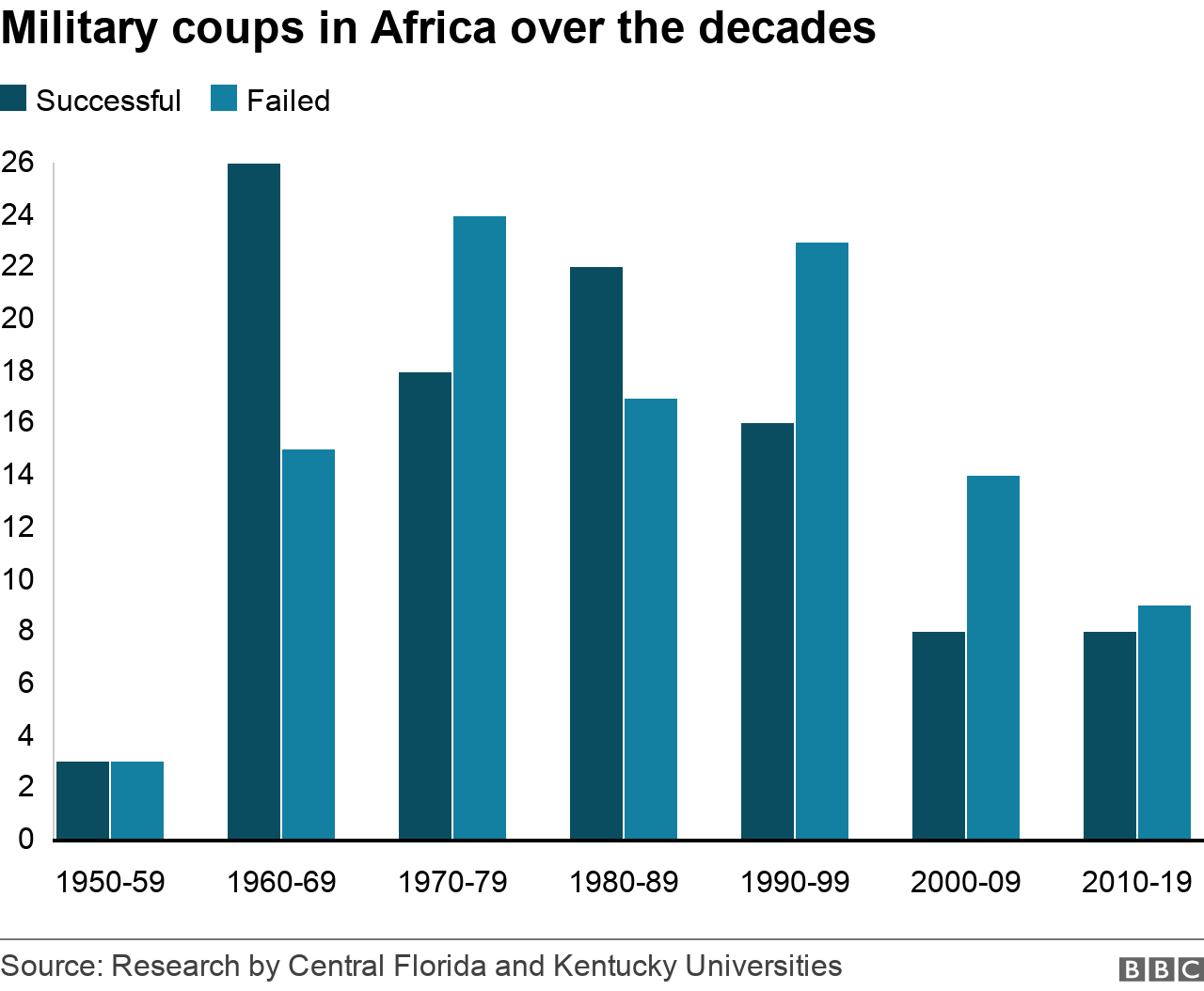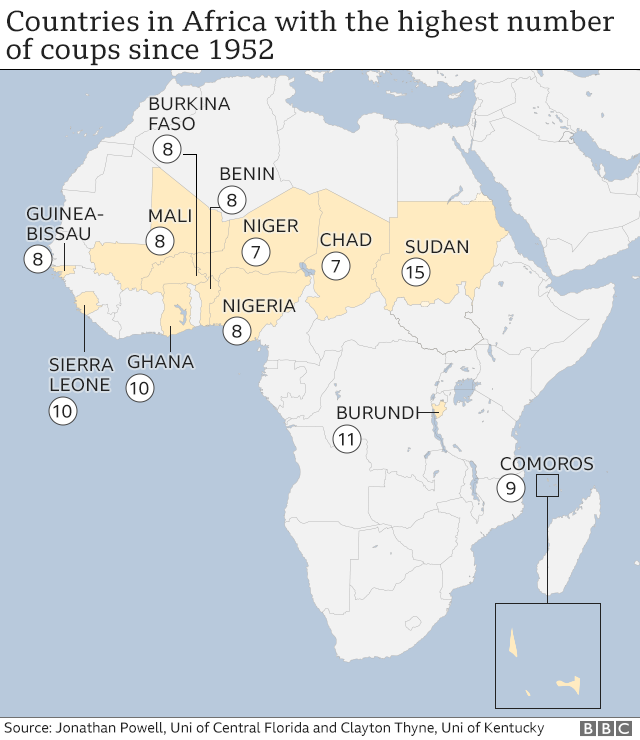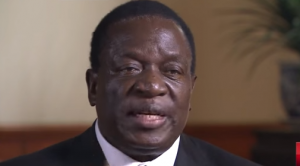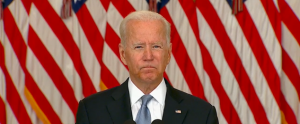
BBC/BBC Reality Check: ‘Guinea Coup: Are Military Takeovers On The Rise In Africa?’ By Peter Mwai.
Military coups have been a regular occurrence in Africa in the decades since independence.
Recent events in Guinea resulting in the ousting of President Condé are the latest example of the army intervening in national politics.
Neighbouring Mali has had two interventions by the army in less than a year, the most recent one in May.
In Niger, a coup was thwarted in March just days before a presidential inauguration.
So are military interventions occurring more often on the continent?
When is a coup a coup?
One definition used is that of an illegal and overt attempt by the military – or other civilian officials – to unseat sitting leaders.
A study by two US researchers, Jonathan Powell and Clayton Thyne, has identified over 200 such attempts in Africa since the late 1950s.
About half of these have been successful – defined as lasting more than seven days.
Burkina Faso, in West Africa, has had the most successful ones, with seven and only one failed.

Sometimes, those taking part in such an intervention deny it’s a coup.
In 2017 in Zimbabwe, a military takeover brought Robert Mugabe’s 37-year rule to and end.
One of the leaders of the action, Major General Sibusiso Moyo, appeared on television at the time, flatly denying a military takeover.
In April this year, after the death of the Chadian leader Idriss Deby, the army installed his son as interim president leading a transitional military council. His opponents called it a “dynastic coup”.
“Coup leaders almost invariably deny their action was a coup in an effort to appear legitimate,” says Jonathan Powell.
Are there fewer coups now in Africa?
The overall number of coup attempts in Africa remained remarkably consistent at an average of around four a year in the four decades between 1960 and 2000,.
Jonathan Powell says this is not surprising given the instability African countries experienced in the years after independence.
“African countries have had conditions common for coups, like poverty and poor economic performance. When a country has one coup, that’s often a harbinger of more coups.”
Coups dropped to around two a year in the two decades up to 2019. We are only two years into the current decade and in 2020, only one coup was reported.
But it’s worth noting that so far this year, there’s been a noticeably higher than average number of coups compared with the previous two decades (Niger, Chad, Mali and Guinea).
Ndubuisi Christian Ani from the University of KwaZulu-Natal says popular uprisings against long-serving dictators have provided an opportunity for the return of coups in Africa.
“While popular uprisings are legitimate and people-led, its success is often determined by the decision taken by the military,” he says.
Which African countries have had the most coups?
Sudan has had the most with 15 – five of them successful. The most recent was in 2019 with the removal of Omar al-Bashir as head of state following months of popular protest.
Bashir had himself taken over power in a military coup in 1989.
Nigeria had a reputation for military coups in the years following independence with eight between January 1966 and the takeover by General Sani Abacha in 1993.
However, since 1999 transfers of power in Africa’s most populous nation have been by democratic election.

Burundi’s history has been marked by eleven separate coups, mostly driven by the tensions between the Hutu and Tutsi communities.
Sierra Leone experienced three coups between 1967 and 1968, and another one in 1971. Between 1992 and 1997, it experienced five further coup attempts.
Ghana has also had its share of military coups, with eight in two decades. The first was in 1966, when Kwame Nkrumah was removed from power, and in the following year there was an unsuccessful attempt by junior army officers.
Overall, Africa has experienced more coups than any other continent.




